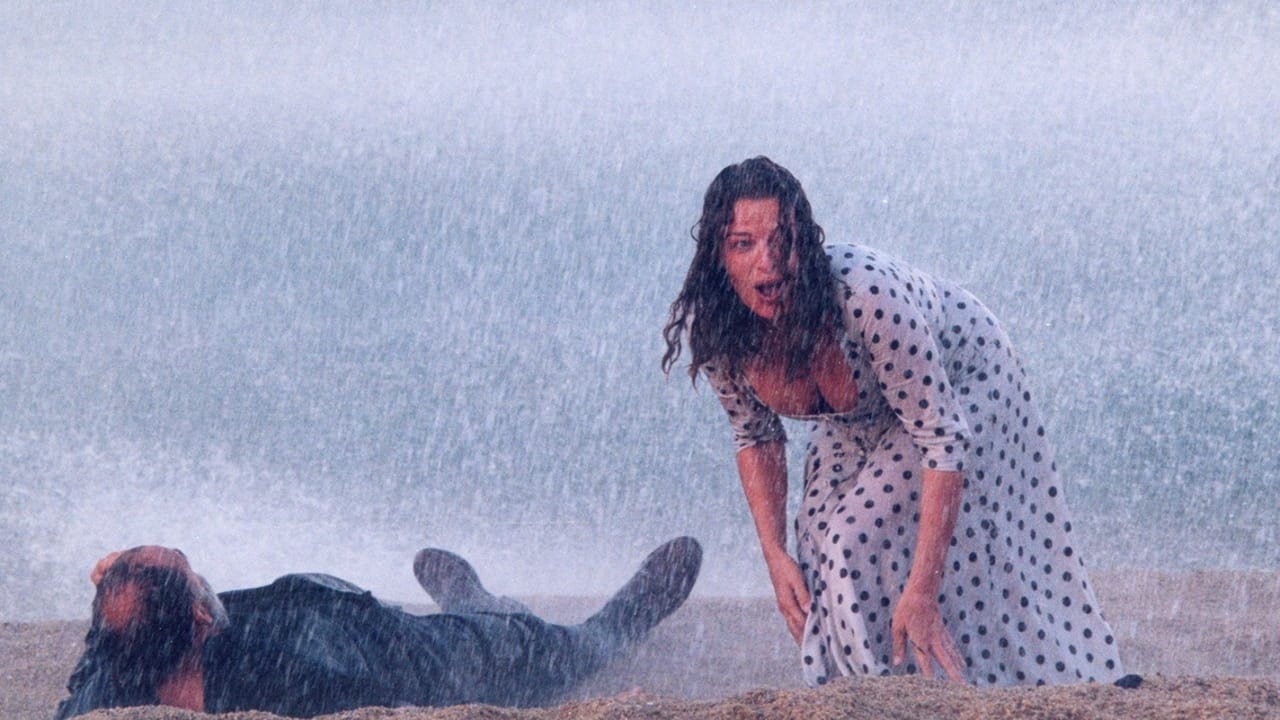



Best movie of this year hands down!
Plot so thin, it passes unnoticed.
The film may be flawed, but its message is not.
There's no way I can possibly love it entirely but I just think its ridiculously bad, but enjoyable at the same time.
View MoreI consider Eternity and a Day the most successful film of Theo Angelopoulos. There has always been a poetic charm and an assertion for poetic communication in all Angelopoulos films. In Eternity and a Day it was most effectively represented. Though almost all of his films are very rich and filled with delightfully shaped and carried out scenes, but some of them I find far too long [ Ulysses' Gaze, The Suspended Step of the Stork] and some too sentimental [ The Weeping Meadow]. Eternity and a Day is very much free from these two traits.Angelopoulos described himself 'a war child'. Born and brought up in a difficult time in Greek history, wars and borders had always been a recurrent theme of his films. His earliest childhood memory was filled up with the sound of air raid sirens and the sight of German troops entering Athens, following the Italian invasion of Greece in 1940's. And like most Greek families of that time, they also had to face serious hardship and hunger. Angelopoulos was further traumatized by the events of 1944, when his father was arrested for not supporting the communist party at the outbreak of civil war, a period known as 'Red December' in Greek history.The events of the film Eternity and a day unfold in a single day, from morning to night, in the life of a famous Greek writer, Alexander. The day is also every now and then hindered by Alexander's past, his recollection of the events associated with his affectionate, dead wife. Alexander is suffering from a serious illness and is going to die very soon. He seems to have a very distant and uncomfortable relationship with his daughter and son in law, who have decided to sell their old house without even consulting him.Alexander encounters a small refugee boy on his way. First time in a traffic halt, he sees a group of boys hurriedly washing the stopped cars, and one of them approaches his. Soon some police men are seen who are running after these boys. Alexander tells the boy who was washing his car, to get inside. He leaves the boy in a different place; the boy goes out without a word. After a while he sees the boy again in some other part of the city, this time he is seen talking to two middle aged men, who forcefully pick him up and put him inside a van. Alexander decides to follow the van, which takes him to a barren part of the city, where these boys are being auctioned. Alexander somehow manages to take the boy out of that place. And after that what follows is almost a silent relationship that grows between the two. Alexander desperately tries to send the boy to his relatives and the boy tries to escape, probably he doesn't have a relative. He initially talks about his grandmother, but when they reach the Albanian border, and a guard is seen approaching, the boy confesses out of fear that previously he lied, he knows no one on the other side of the border. They run away from there. Alexander shouts in anguish that he can't leave him like this. And they both kind of seem helpless about it.Later, Alexander tells the Albanian orphan a story of a Greek poet of the past who lived his life in some other country and did not know his mother-tongue. But during the time of revolution, he felt an urge to come back to Greece and start writing poems in Greek, celebrating the revolution. But he didn't know Greek at all. So he started to study the language and gave money to anyone who gave him a new Greek word. But still his poetry remained incomplete, something that Alexander has been trying to finish for a long time. Stirred by the story, the Albanian boy goes out to search words at the dock. Interestingly Alexander picks up three words from him. One, 'korfulamu', a delicate word for the heart of a flower, a 'literal word of comfort' for his physical suffering, second, 'xenitis', a word that means the feeling of being a stranger everywhere, and the third, 'argathini', meaning very late at night – all of which echoes angelopoulos' poetic epitome, his sentiment of perpetual separation, his anguish for the death of a culture.Alexander doesn't only try to help out the kid, soon enough he indulges himself to communicate with the kid through words and poetry. And in the process, gets close to the kid and emotionally attached. It would be proper to say that Alexander finds comfort and a greater purpose through these exchanges. They seem to strike the same chord.As for the film, nothing really happens in the end. Their day comes to end after the bus journey. The boy leaves in a ship, and Alexander goes back to his memory of reconciliation or separation, or may be both at the same time.There are number of marvelously crafted scenes and moments that one can talk about, the scene in which Alexander's house maid's daughter is getting married out in the street, the scene in which the Albanian orphan burns the belongings of his long time friend Salim, the scene at the dock, at the Albanian border, at the traffic signal, and especially the bus journey at night.I wonder what the guy was doing with a huge red flag in the bus. Is that some kind of a political association? Well, he had a big flag in his hand no doubt, and that too was red. He even appeared at a crucial juncture of the film. Interestingly, moments after he gets up on the bus, he goes off to sleep and doesn't seem to wake up. Even the beautiful music played by the band inside the bus fails to wake him up.
View MoreA pretty strong sense of deja-vu gripped me as I was watching "Eternity and a Day", and it wouldn't let go. The blurred windows and lights, the people with the yellow water-coats, the obligatory walk by the sea, the foggy settings, the usual mix of suburban and rural Greek landscapes, the choreographed wedding etc. It's hopeless, any post "Alexander the Great" Angelopoulos film feels the same. "Eternity and a Day" is his version of Fellini's "Amarcord", with a few bits of "Death in Venice" thrown in for good measure (the ending for example).What's worse is having to endure the pseudo-philosophical babble of famous rich directors, who are trying to convince us that they are existentially troubled. Cringe as the protagonist (ie the director's alter ego) wonders why he was unable to love in his life, or how long tomorrow lasts. Blush at the pure melodrama of his ex wife's letters. Elitists will of course say that this is "deep" art, but I must protest, Angelopoulos made quite a few bucks with this one. You would be well advised to watch "Travelling Players" or "Alexander the Great" instead.
View MoreSince I traveled to Prague in 2003 and bought Eleni Karaidrou's album "Eternity and a Day" I was wondering when and where could I get this movie.I got it and it was incredible for me. Poetry, photography (I think it is the best photography I've ever seen in a movie) and music in an amazing movie THAT I DID NOT UNDERSTAND because it's in Greek (no English subtitles in the release I've got). You don't need to understand their words to feel it, to cry and to laugh when the moment comes. Angelopoulos has made, in my honest opinion, a master piece of theater-movie.Buy it, keep it, show it to your children, to your parents...
View MoreA film straight from my dreams, drifting in and out of logical existence into the land of the dead. The story, as much as there is a story, involves an aging poet (played by European film staple Bruno Ganz) who has a terminal disease. He is apparently destined to die tomorrow, and we spend his final day following him, from his waking to midnight. Early in the morning he picks up a young homeless boy, an Albanian refugee, who tries to wash his window at a stoplight. Together they go on silent adventures. At regular intervals the film flashes back to Ganz's interactions with his beautiful wife, who never appears in the present, nor do we find out where she is. Most of the film's power is visual and aural. It is truly a sensual experience, along the lines of a Tarkovsky film. Because of its sensual prominence and lack of a coherent plot, it will surely fade from the surface of my memory. However, it is guaranteed to haunt me for the rest of my life. 10/10.
View More